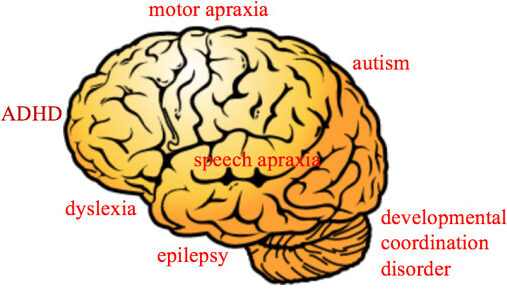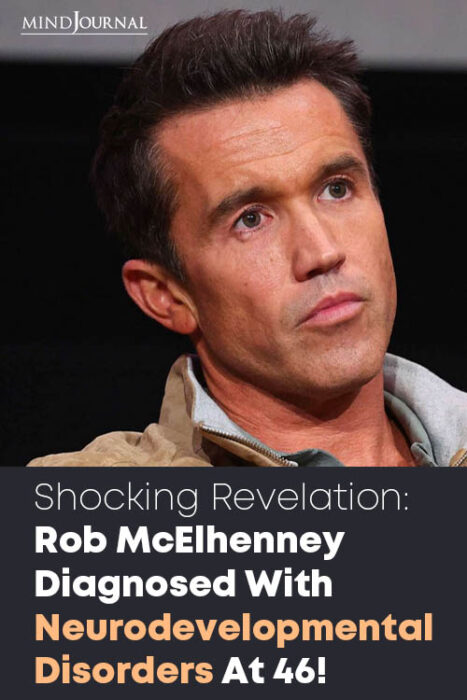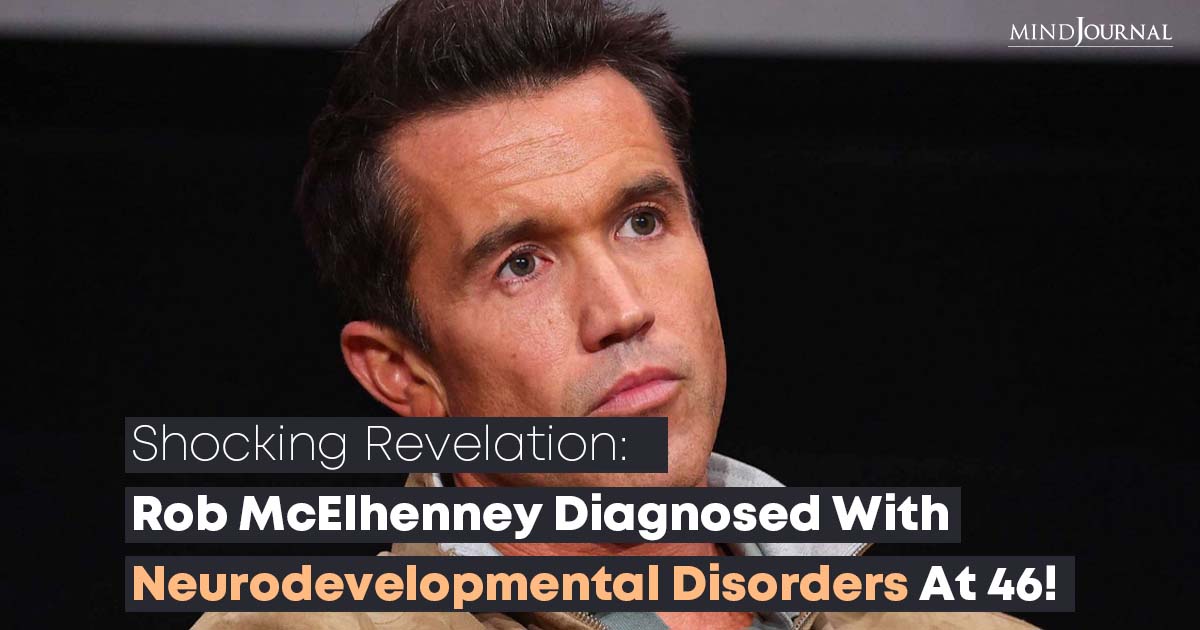Actor Rob McElhenney diagnosed with neurodevelopmental disorders. The actor is best known for his role in the hit sitcom “It’s Always Sunny in Philadelphia,” has recently shared a personal revelation with his fans.
Rob McElhenney diagnosed with neurodevelopmental disorders and learning disabilities at the age of 46.
In a heartfelt Twitter post, he expressed his intention to discuss his journey and newfound understanding on an upcoming episode of “The Always Sunny” podcast.
This news has sparked conversations about neurodevelopmental disorders, their symptoms, and coping strategies.
In this news, we delve into the topic, shedding light on neurodevelopmental disorders, exploring their symptoms, and providing insights on how individuals can cope with these challenges.

Read more here: Tom Holland Reveals Battle With Alcohol, Said He Felt “Enslaved” To Liquor
Former Actor Rob McElhenney Diagnosed With Neurodevelopmental Disorders
Rob McElhenney took to Twitter to share his recent diagnosis, expressing his intention to discuss his journey in an upcoming episode of “The Always Sunny” podcast.
In his heartfelt message, he acknowledged that neurodevelopmental issues or disorders and learning disabilities are not something he would typically discuss publicly.
However, he felt compelled to share his experience to remind others who struggle with similar challenges that they are not alone.
McElhenney emphasized that having neurodevelopmental disorders does not make a person “stupid” or “bad,” dispelling the negative stereotypes associated with these conditions.
Read more here: Lewis Capaldi Cancels Tour To ‘Adjust To The Impact’ Of Tourette Syndrome
Understanding Neurodevelopmental Disorders
Neurodevelopmental disorders refer to a group of conditions that affect the normal development and functioning of the brain.
These disorders typically emerge in childhood and persist into adulthood, impacting various aspects of a person’s life, including learning, communication, social interaction, and behavior.

Neurodevelopmental Disorders Symptoms And Challenges Faced By Individuals
The Neurodevelopmental disorders symptoms and challenges can vary widely, depending on the specific condition and its severity. Some common difficulties experienced by individuals include.
1. Academic Challenges
These disorders often impact learning abilities, making it challenging for individuals to excel academically. Difficulties in reading, writing, math, or comprehension can significantly hinder educational progress.
2. Social And Communication Barriers
Many individuals with these disorders face hurdles in social interactions, such as understanding social cues, maintaining eye contact, or interpreting nonverbal communication. These challenges can lead to social isolation or difficulties in forming meaningful relationships.
3. Emotional And Behavioral Concerns
These kinds of disorders may contribute to emotional instability, impulsive behavior, or difficulties with self-regulation. These challenges can affect an individual’s emotional well-being and relationships with others.
Read more here: Kim Kardashian Has Imposter Syndrome Despite Being On Time’s Cover Of 100 Most Influential People
Coping Strategies And Support For Neurodevelopmental Disorders
While living with these disorders presents unique challenges, there are various strategies and support systems available to help individuals thrive. Here are some critical approaches.
1. Early Intervention
Identifying and addressing the disorders early in life can greatly enhance the individual’s long-term outcomes. Early intervention programs may include therapies, educational support, and individualized strategies to develop essential skills.
2. Therapeutic Interventions
Various therapies, such as behavioral therapy, speech therapy, occupational therapy, and social skills training, can play a vital role in addressing specific challenges associated with these disorders.
These interventions aim to improve communication, social interaction, and overall functioning.
3. Individualized Education Plans (IEPs)
Schools can develop IEPs to accommodate the unique learning needs of students with neurodevelopmental issues or disorders. These plans outline personalized strategies, accommodations, and support services to facilitate academic progress.
4. Supportive Environment
Creating a supportive and inclusive environment at home, school, and in the community is crucial for individuals with these disorders.
Encouragement, understanding, and empathy from family, friends, educators, and peers can significantly contribute to their well-being and success.
Rob McElhenney’s revelation about his diagnosis of neurodevelopmental disorders has brought attention to these conditions and the challenges individuals face.
Neurodevelopmental disorders encompass a range of conditions affecting learning, communication, and behavior.
Understanding the symptoms and exploring coping strategies can empower individuals with neurodevelopmental disorders and foster a more inclusive society.
By raising awareness and offering support, we can create an environment that celebrates neurodiversity and ensures that individuals with these disorders are not alone in their journey.









Leave a Reply
You must be logged in to post a comment.